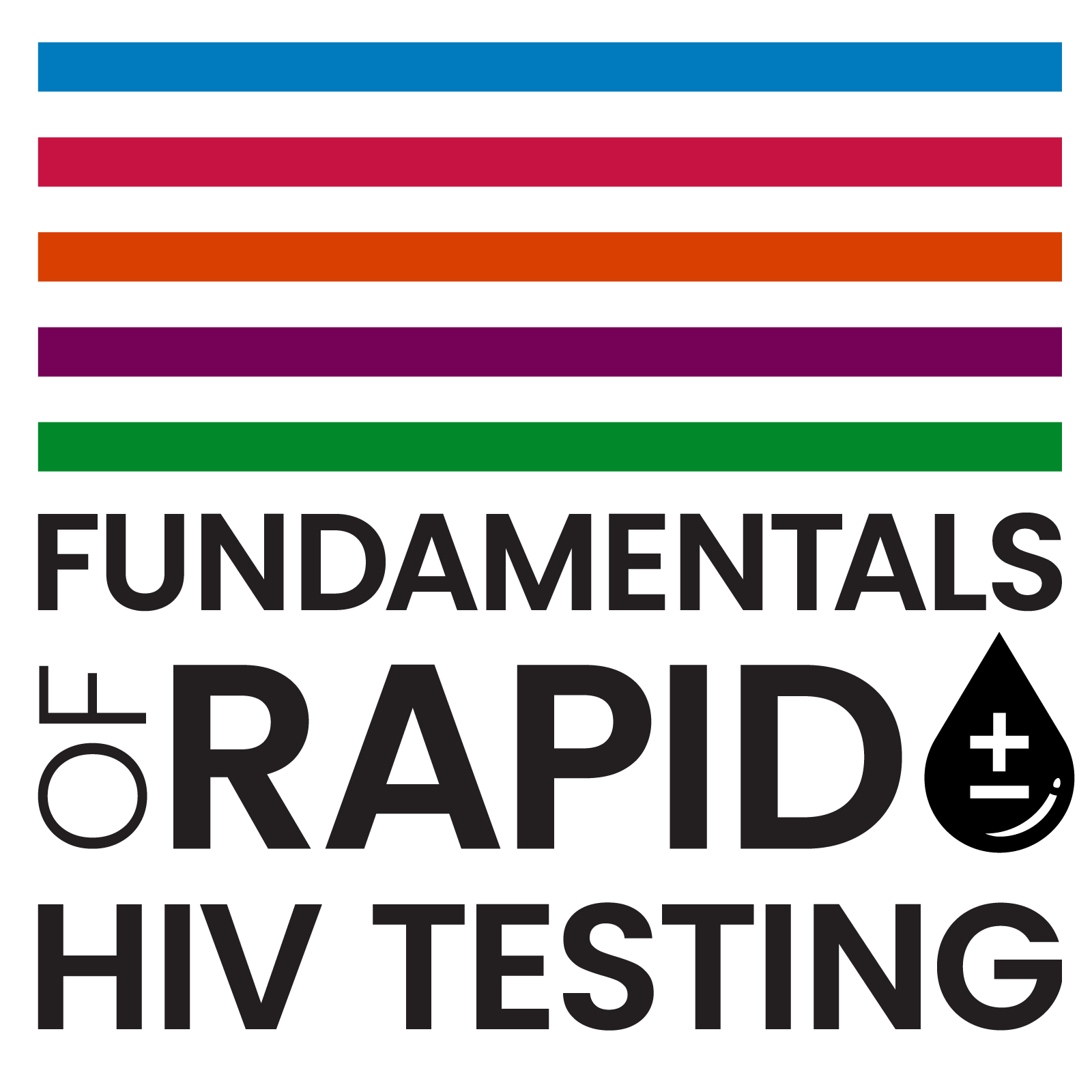HIV Testing in Nonclinical Settings
HIV Testing in Nonclinical Settings is a course designed to train testing providers who work in nonclinical settings to conduct HIV testing using a streamlined Six-Step Protocol with greater emphasis on meeting a client where they are, sex-positive messages, retesting recommendations, and active referrals based on a person’s current circumstances. This course focuses on building testers’ skills to clearly communicate concise messages on risk factors and the window period of Clinical Laboratory Improvement Amendments of 1988 (CLIA)-waived tests, on delivering the Six-Step Protocol, and on customizing the referrals and linkages to each client based on their risk screening and test results.


About HIV Testing in Nonclinical Settings
HIV Testing in Nonclinical Settings is a key public health strategy under the Ending the HIV Epidemic in the U.S. (EHE) Diagnose Pillar. A nonclinical setting is defined as a location not offering routine HIV treatment. Examples of nonclinical settings for HIV testing may include community-based organizations (CBOs), retail and community pharmacies, mobile units, and places a population of interest congregates and is accessible (e.g., parks, bridge underpasses, bars, community festivals).
Nonclinical settings should be easy to access and useful for reaching people who might not be willing or able to access medical services regularly. They typically provide same-day rapid HIV testing results and support based on the wholistic needs and desires of the individual.
About the HIV Testing in Nonclinical Settings Training
HIV Testing in Nonclinical Settings is the Centers for Disease Control and Prevention’s (CDC’s) latest HIV testing training for nonclinical settings. This training is influenced by CDC’s guidance Implementing HIV Testing in Nonclinical Settings: A Guide For HIV Testing Providers (2016), as well as advancements in the field since its publish date. Key influences on this curriculum have been shifts in HIV prevention, care, and treatment that have occurred since the previous training called Fundamentals of HIV Prevention Counseling training, and the policies that followed.
The HIV Testing in Nonclinical Settings course has a streamlined Six-Step Protocol with greater emphasis on meeting a client where they are, sex-positive messages, retesting recommendations, and active referrals based on current circumstances.
This course is being offered virtually, with live instructors and utilizes a variety of adult learning methodologies inclusive of lectures, group discussions, video forums, and role-plays.
About the Fundamentals of Rapid HIV Testing Training
The Fundamentals of Rapid HIV Testing E-learning course provides foundational training to rapid HIV testing staff working in nonclinical community-based settings such as health departments, community-based organizations, and other nonclinical HIV testing sites.
This course prepares rapid HIV testing staff to conduct the key steps of rapid HIV testing: setting up workspace, conducting the rapid HIV test, preparing clients for the test and delivering test results, and conducting quality assurance activities.
Trainings
HIV Testing in Nonclinical Settings training has one component:
- 3-day (5 hours per day) virtual, instructor-led training; or
- 2 days (8 hours per day) in a live classroom setting
Fundamentals of Rapid HIV Testing training has one component:
- 5-module self-paced eLearning training
To view and register for scheduled instructor-led virtual or classroom training:
- Access the National HIV Classroom Learning Center training calendar hosted on Cicatelli Associates, Inc.’s (CAI’s) website.
- Pre-register for your selected course via the link provided in the training calendar.
- Complete your registration on CDC TRAIN as directed when you receive an email from the National HIV Classroom Learning Center. You must join the HIV CBA Learning Group and locate the HIV CBA Training Plan in order to complete your CDC TRAIN registration for a specific classroom training session (step-by-step instructions are available).
To access eLearning training:
- Log-in to CDC TRAIN and access the HIV CBA Training Plan (step-by-step instructions are available).
- Select the module you wish to take.
- Launch the module or save the module for later.
To request technical assistance or that a training session be scheduled:
- CDC’s directly funded health department and CBO partners may request delivery of a CDC-supported training or technical assistance by submitting a request in the CBA Tracking System.
- Organizations not directly funded by CDC may contact their local health department for assistance in submitting a training or technical assistance request.
If you have questions or need additional assistance, please contact HIVCBA@cdc.gov.
Implementation and Marketing Materials
The materials and resources listed below support the implementation and/or marketing of HIV Testing in Nonclinical Settings by health departments, community-based organizations, and health care or other organizations. The resources are evidence-based and designed for cost-effective, scalable implementation.
- Implementing HIV Testing in Nonclinical Settings: A Guide for HIV Testing Providers (2016).
- Fonner VA, Denison J, Kennedy CE, O’Reilly K, Sweat M. Voluntary counseling and testing (VCT) for changing HIV-related risk behavior in developing countries. Cochrane Database Syst Rev 2012;Issue 9. Art.No.:CD001224.DOI:10.1002/14651858.CD001224.pub4.
- Revised Recommendations for HIV Testing of Adults, Adolescents, and Pregnant Women in Health-Care Settings. MMWR 2006;55(RR14):1-17.

